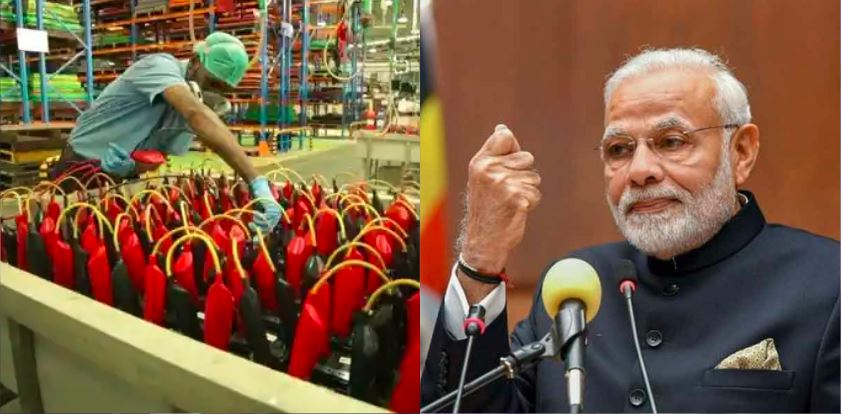Modi government has been pushing for clean energy for quite some time now. In a big move, which will result in import substitution of no less than Rs 20,000 crores, the Union Cabinet on Wednesday approved a Rs 18,100 crore production-linked incentive (PLI) scheme for the setting up of advanced chemistry cell (ACC) battery storage facilities. According to a Livemint report, these would be Tesla-style Giga factories to manufacture batteries, which in turn will fuel India’s clean energy push and power the country’s electricity grids and upcoming electric vehicle industry.
The report added that the plan is to set up 50 Giga watt-hour (GWh) manufacturing capacity for advance chemistry cell batteries by attracting investments totalling Rs 45,000 crores, according to the government. One GWh (1,000 megawatt-hour) of battery capacity is sufficient to power 1 million homes for an hour and around 30,000 electric cars. With the approval for a production-linked incentive to prospective ACC battery storage facilities, India is projected to save a whopping $2 to $2.5 trillion over a period of five years, as such facilities will severely liberate India from its need to import oil.
The specific PLI scheme is named the National Programme on Advanced Chemistry Cell (ACC) Battery Storage, and the government says that the programme will reduce import dependence. It will also support the Aatmanirbhar Bharat initiative. “Each selected ACC battery storage manufacturer would have to commit to set up an ACC manufacturing facility of minimum 5GWh capacity and ensure a minimum 60% domestic value addition at the project level within five years,” the government said in a statement.
Read more: Short on luck, India has no Lithium reserves for the electric vehicle age. But it has a plan
Under the PLI scheme, the government said, “The beneficiary firms have to achieve a domestic value addition of at least 25% and make the mandatory investment of Rs 225 crore /GWh within 2 years (at the mother unit level) and raise it to 60% domestic value addition within 5 years.” According to the Financial Express, battery-consuming sectors including consumer electronics, electric vehicles, advanced electricity grids and solar rooftop, are expected to benefit from the move.
The PLI scheme meant for ACC battery storage would especially be beneficial for India as it would place the country as a global hegemon when it comes to producing clean energy and critical equipment required for the same. Advance Chemistry Cells (ACCs) are the new generation advanced storage technologies that can store electric energy either as electrochemical or as chemical energy and convert it back to electric energy as and when required.
The scheme would also help India significantly cut down on its oil dependence. India is the third-largest importer of oil and is especially prone to price fluctuations which can be triggered by a variety of reasons. To stay clear of all such scenarios, the Modi government has taken a timely and much-needed decision to incentivise ACC battery storage facilities in the country.
